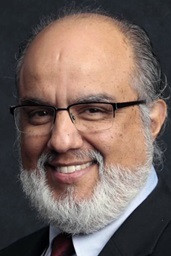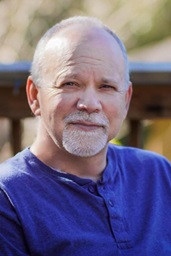NASHVILLE, Tenn. (UMNS) — The death penalty is the most flagrant example of racism today, and it is our biggest civil rights and human rights issue, said Sister Helen Prejean, author of “Dead Man Walking.”
“We need to wake people up and we need to end this thing because the suffering is terrible,” she said.
Prejean was the guest speaker Dec. 7 at the 25th anniversary awards dinner of the Scarritt-Bennett Center, a retreat center operated by United Methodist Women. Prejean received the Belle Harris Bennett VisionAward for her social-justice work. The Roman Catholic nun’s 1993 book, “Dead Man Walking,” became a best-seller and a movie, and was followed by “The Death of Innocents: An Eyewitness Account of Wrongful Executions.”
Obama should be valued, not hated, bishop says
We must learn to value great leaders like Nelson Mandela and the Rev. Martin Luther King Jr. while they are alive, said retired United Methodist Bishop Melvin Talbert, whose life has intersected with the lives of both leaders.
President Barack Obama is a leader “with the same kind of potential as a Martin Luther King Jr. and as a Nelson Mandela,” Talbert said, “but we are hating him.”
Talbert spoke briefly Dec. 7 at theScarritt-Bennett Center25th anniversary awards dinner, where he was presented with the Ann L. Reskovac Courage Award for his social justice work.
“The world tonight is mourning the passing ofNelson Mandela,” he said, describingMandela as “one of my idols.” He recalled being part of the welcoming team that greeted Mandela at Riverside Church in New York, shortly after Mandela was released from prison in South Africa. Mandela’s leadership and his forgiveness of a regime that had imprisoned him for 27 years helped South Africa move past apartheid. Mandela died Dec. 5 at age 95.
Decades earlier, as a young civil rights activist, Talbert spent three days and nights in a jail cell with the Rev. Martin Luther King Jr. He said it was ironic that people who hated Kingwhen he was alive “put on their black robes and joined the people in the streets to say what a great man he was” afterhe was killed.
“I say that simply to remind us that we have, as the president of this country, one of the leaders with the same kind of potential as a Martin Luther King Jr. and as a Nelson Mandela, but we are hating him.
“And so my heart goes out in prayer that we somehowin this nationlearn to value those kinds of leaders when they are living, rather than waiting until they are dead.”
Talbert expressed appreciation for the Ann L. Reskovac Award. “This is a deeply moving moment for me,” he said. “I accept this award with gratitude.”
His acceptance of the award occurred against a backdrop of conflict in The United Methodist Church around sexuality, inclusiveness, church policy and Scripture.The denomination’s Book of Discipline defines marriage, as being between a woman and a man, and it forbids the performance of same-sex unions in United Methodist sanctuaries and by United Methodist clergy.
Talbert, who has long advocated for changing that policy, flouted church law in October by officiating at the same-sex wedding of two United Methodist men in Birmingham, Ala. The United Methodist Council of Bishops, which had urged him not to perform the ceremony, has initiated a complaint process against him.”
He told the audience at Scarritt-Bennett that he is involved in a “battle in my church.” It is a battle he has chosen “because I love my church. I want it to be what I think God wants it to be.
“At every level of the life of our church, we have people who are living in partnered relationships, but it can’t be public,” Talbert said. “That’s the criminal part of it. … When the church participates in that kind of hypocrisy, someone has to name it.”
He said he hopes that by naming it he can help the church “to lift the veil of hypocrisy” and become “what God wants us to be.”
The award, named for a former Scarritt-Bennett Center chairperson who died in 2008, is given to someone who reflectscourage in their work in God’s world, said Jocelyn D. Briddell, executive director of the center. “Bishop Talbert is representative of this award because of his selfless service and commitment to inclusiveness regardless of race, gender and sexual orientation.He believes that all humankind should be about grace and love, and therefore there is always room at God’s Table for each and every one of us.”
“The death penalty is the most dramatic” representation of racism today, she said.The 10 Southern states that practiced slavery do 80 percent of the executions, she said. When, she asked, are we going to wake up?
African Americans accounted for nearly 42 percent of death-row inmates as of last April, while whites accounted for 43 percent, and Latino/Latinas were nearly 13 percent, according to the Criminal Justice Project of the NAACP Legal Defense and Educational Fund. However, African Americans are only about 13 percent of the total U.S. population.
Moment of awakening
The death penalty is more likely to be imposed, Prejean said, when the victim is of European descent — a finding supported by a number of studies gathered by Amnesty International. When a life is negligible, the death is negligible, and the ultimate punishment won’t be imposed, she said.
It’s almost inevitable that when poor people are going against a well-resourced prosecutor, and the public defender is overworked and underpaid, the truth won’t come out in trial, she said.
Prejean, who has been inside prison death chambers in Louisiana, Texas and Virginia, described how the representatives of the victim watch as the state kills the person who killed their loved one. They are told that watching the execution will bring healing for them, Prejean said. Meanwhile, she said, the mother of the condemned person watches with her face against the glass as the state kills her child.
Prejean said her moment of awakening occurred when she witnessed a man being executed— a legal killing by the state of Louisiana because the man had killed someone. “What I saw set my soul on fire, a fire that burns in me still,” she told the audience at Scarritt-Bennett. The 1984 execution of convicted murderer Elmo Patrick Sonnier formed the basis for “Dead Man Walking.”
God wakes us up when it’s time, and when that moment happens, one must act, she said. Taking action is liberating, and it throws us into community, she said. “There’s no room for lone rangers in this work. You don’t last long. … Community sustains us.”
The United Methodist Church has officially opposed the death penalty for more than 50 years, and it urges the elimination of capital punishment from all criminal codes.
“We believe the death penalty denies the power of Christ to redeem, restore, and transform all human beings,” the church says in its Social Principles. “The United Methodist Church cannot accept retribution or social vengeance as a reason for taking human life.”
‘Most support life’
Based on scientific studies, the church believes capital punishment doesn’t result in a reduction of crime or in the number of homicides. The church also is concerned that death penalty sentences fall disproportionately on marginalized people, including the poor, uneducated, ethnic and religious minorities, and people who are mentally or emotionally ill.
When given an alternative, most people indicate support for life without parole over the death penalty, Prejean said.
“We are in a new mood in this country about the death penalty,” she said.Statistics from the Death Penalty Information Center indicate that capital punishment doesn’t reduce or deter crime in areas where it is used. “We’re practical people, and we don’t see practical differences,” Prejean said.
“The American people are not wedded to the death penalty,” Prejean said. “They just never think about it.”
She connected the death penalty with other issues, such as society’s treatment of gays and Muslims.
“All of the deep human rights issues are connected to dignity,” Prejean said. At the heart of the gay rights issue is the belief that someone who is gay is not quite human or normal, she said, adding that the same holds true for perceptions about Muslims and people in other groups.
The Scarritt-Bennett Center directors and guests gave Prejean a standing ovation.
Center Executive Director Jocelyn D. Briddell said the award that Prejean received is given “to a person who embodies the bold vision and action of our founder, Belle Harris Bennett, who responded to God’s call on her life without hesitation or reservation. Sister Helen Prejean was selected because she embodies the legacy of Bennett because of her commitment to eradicating the death penalty in the U.S.”
After the dinner, Briddell and Prejean conferred on how they could work together on the death penalty issue in Tennessee. State officials recently announced that they had asked the state supreme court for execution dates for 10 death row prisoners.
Prejean said United Methodists can activate people in the pews to be a force, to be the ones on the streets, going to death row and visiting the families of victims.
*Tanton is executivedirector of content for United Methodist Communications. Contact him at (615) 742-5470 or [email protected]
Like what you're reading? Support the ministry of UM News! Your support ensures the latest denominational news, dynamic stories and informative articles will continue to connect our global community. Make a tax-deductible donation at ResourceUMC.org/GiveUMCom.




